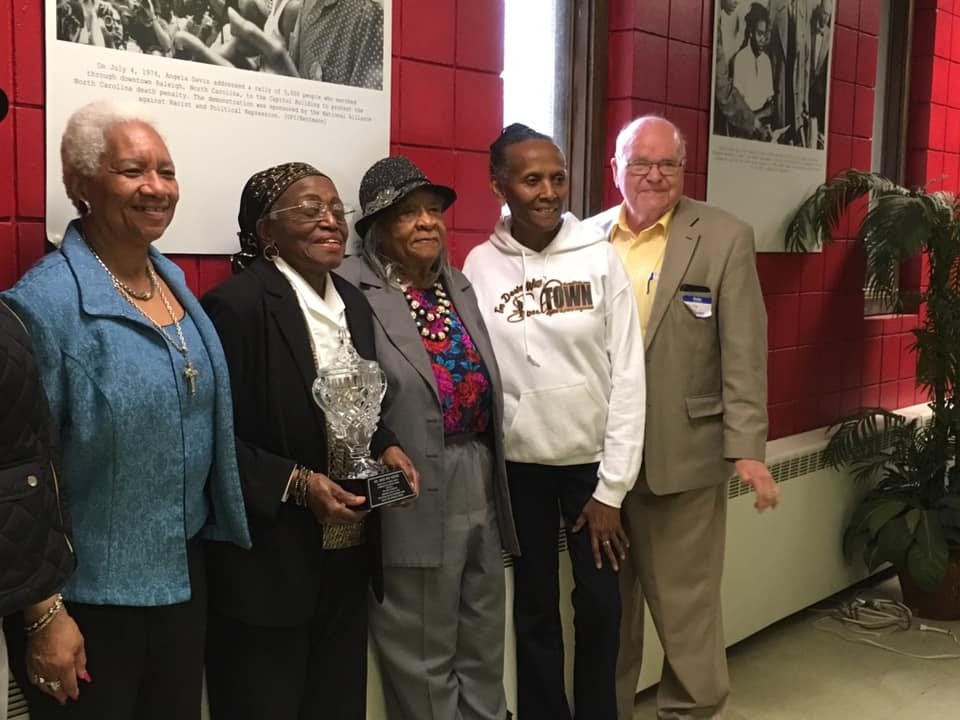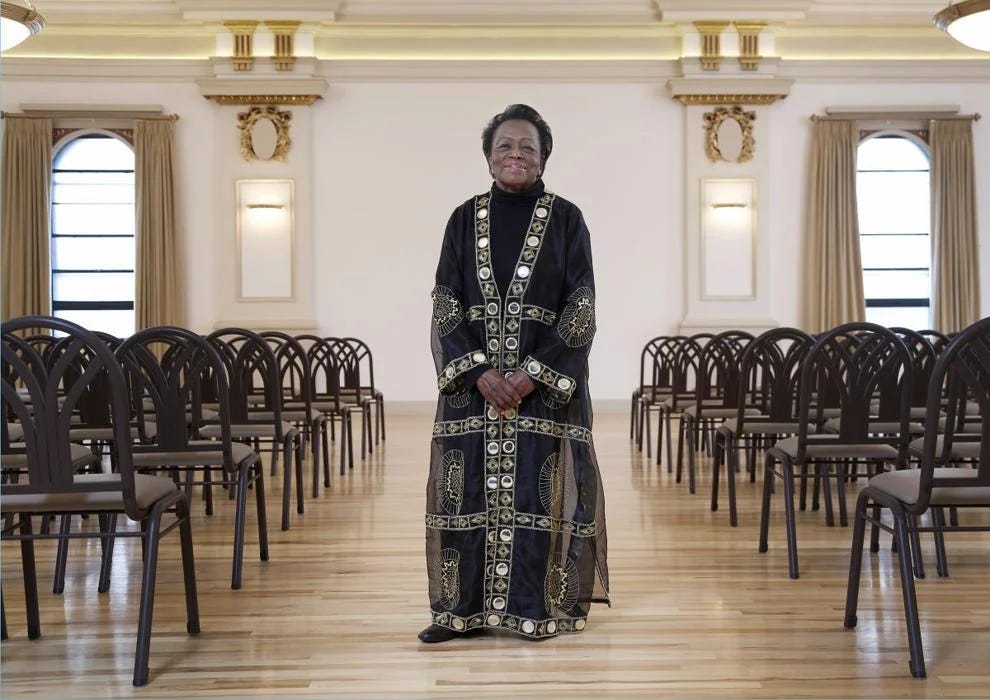Legendary Waterloo civil rights activist Anna Mae Weems passes away at 98
Brought MLK to Waterloo in 1959
“I am in earnest—I will not equivocate—I will not excuse—I will not retreat a single inch—and I will be heard!”
—William Lloyd Garrison, “The Liberator,” 1831

This story was published in the Oct. 12, 2024 Waterloo-Cedar Falls Courier.
WATERLOO — A great force for social and racial justice in the Cedar Valley has passed away.
Longtime Waterloo civil right activist Anna Mae Weems died at the age of 98 on Sept. 22, family members announced. A public memorial service is pending and will be announced at a later date.
Weems is perhaps best known locally for bringing the Rev. Martin Luther King Jr. to Waterloo-Cedar Falls in November 1959, when he spoke at West High School and Iowa State Teachers College, now the University of Northern Iowa.
That was just one milestone in the life of a woman who was a persistent voice for equity among all people.

“What a legacy Anna Mae Weems leaves of standing up for the civil rights of so many. From bringing Dr. King to Waterloo to advocating for worker protections, her achievements have had a generational impact on so many and will continue to reverberate,” said Waterloo Mayor Quentin Hart.
“Our thoughts and prayers are with her family as our entire community processes such a tremendous loss,” Hart said.
Weems also marched in the first day of the Memphis, Tennessee, sanitation workers strike during which King was assassinated on April 4, 1968.
After four Birmingham, Alabama, schoolchildren were killed in the bombing of the 16th Street Baptist Church on Sept. 13, 1963, by members of the Ku Klux Klan, Weems brought the parents of one of the slain girls, Carol Denise McNair, to Waterloo for a public memorial service at Grant Elementary School on Oct. 26, 1963.
Whether on the production floor of The Rath Packing Co. in the 1950s, being arrested at a racially segregated lunch counter in Oklahoma City in the early 1960s, or calling attention to racial disparities in Waterloo, Weems was all about what the late U.S. Rep. John Lewis called causing “good trouble” — in order to make this nation live up to its aspiration of liberty and justice for all.
As the decades passed, her activism was seen in a different light by many in Waterloo and she went from being reviled by some to being revered.
In 2019 she was recognized for a lifetime of work by the Waterloo Human Rights Commission. She also was a Waterloo-Cedar Falls Courier “Eight over 80” honoree in 2015, an award recognizing outstanding achievement by area senior citizens.

At the time of her Eight over 80 recognition, she said some people “identify me with problems, and I can understand that. In ways, to me, it’s a compliment, because I recognized there was a problem, and I try to solve it.” She said she was “blessed” to see some division in her community replaced with inclusion.
She was not a witness to history, but a participant.
A graduate of Waterloo East High School Class of 1943, she became active in United Packinghouse Workers of America Local 46 at Rath, one of the city’s two largest employers. It was a racially integrated workforce and a racially integrated union offering a springboard for empowerment within Waterloo’s Black community.
It was through her UPWA involvement that Weems was invited to a Washington, D.C., prayer breakfast of labor representatives in the late 1950s, convened by then-Vice President Richard Nixon.
At that breakfast Weems heard a dynamic young minister deliver the invocation.
It was King.
She invited him to come to Waterloo. He had begun to make a name for himself as a minister in Montgomery, Alabama, where he was a key figure in the city bus boycott there.
In the 1970s and 1980s, Weems brought the Rev. C.T. Vivian – a King associate and SCLC organizer featured in the 1987 award-winning PBS documentary “Eyes On the Prize” – to Waterloo to conduct communitywide Urban Potential race relations training through the Waterloo Chamber of Commerce.
It was an eye-opening experience for many white community leaders.
Vivian “just brought up so many things that we didn’t think of, that you had no idea of if you weren’t Black,” recalled the late Bob Brown, a longtime Waterloo City Council member. Vivian’s foundation, based in Atlanta, still offers that training.
Weems also took Waterloo community leaders The King Center for Nonviolent Social Change in Atlanta to meet with Coretta Scott King, widow of the slain civil rights leader’s widow.
Contacted on MLK Day prior to her 97th birthday in 2023, Weems said she and her loved ones “continue to be blessed daily.’
But she added, “On this day, I am reminded there is still much work to do ahead for us all.”
Pat Kinney is a freelance writer and former longtime news staffer with the Waterloo-Cedar Falls Courier and, prior to that, several years at the Ames Tribune. He is currently an oral historian with the Grout Museum District in Waterloo. His “View from the Cedar Valley” column is part of “Iowa Writers Collaborative,” a collection of news and opinion writers from around the state who previously and currently work with a host of Iowa newspapers, news organizations and other publications. They are listed below. Clink on the links to check them out, subscribe for free - and, if you believe in the value of quality journalism, support this column and/or any of theirs with a paid subscription .
The Iowa Writers’ Collaborative




Thank you Pat for sharing the story of Anna Mae Weems. Contrary to today’s rollbacks, she was a leader who acted on a vision. Our paths had briefly crossed when I was director of the iowa Civil Rights Commission from 2014-2011. I hope you write more about her courage and dignity. By the way, in recent years, we have lost many icons in Iowa’s civil rights history, including my dear friend Walter Reed from Waterloo. Your writing will help keep her vision, message and spirt alive.